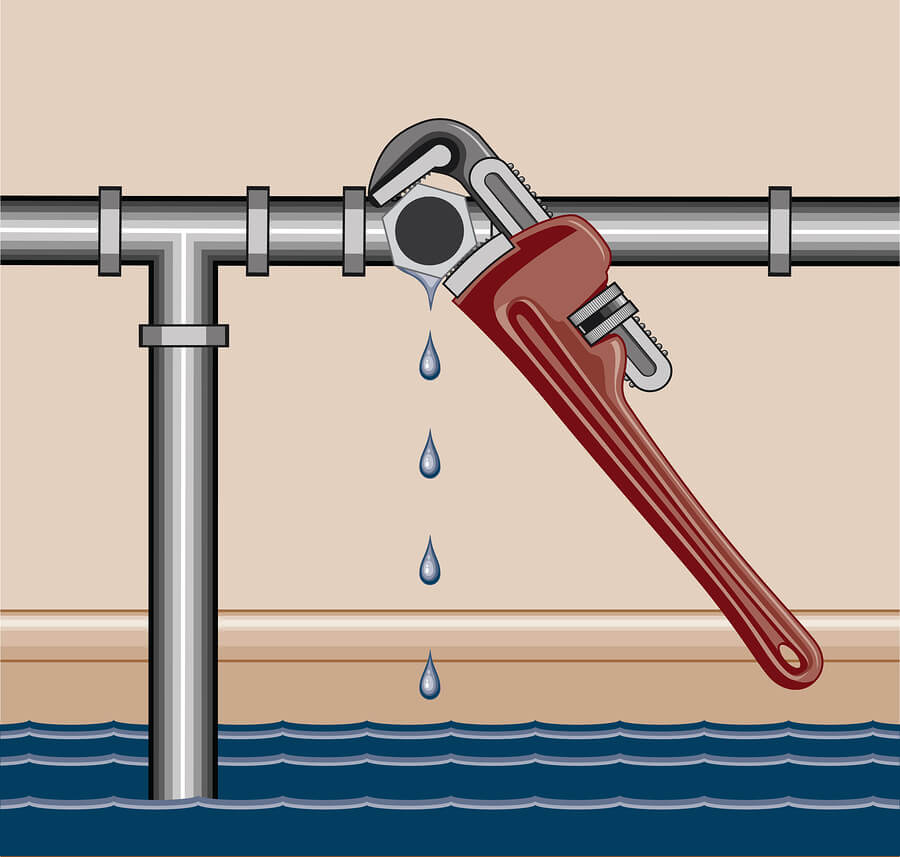The Home's Principal Frequent Factors of Leak Problems: In-Depth Analysis
The Home's Principal Frequent Factors of Leak Problems: In-Depth Analysis
Blog Article
Nearly everybody maintains his or her own idea about Most Common Causes of Leaky Pipes.

Leaks not only create waste of water however can also cause unnecessary damages to your residence and also advertise undesirable organic growth. By comprehending and looking for everyday situations that cause leakages, you can secure your residence from future leaks as well as unneeded damages.
Elbowing in roots
Most water leaks begin outside the house instead than inside it. You could notice damp patches or sinkholes in your yard, and also that could suggest that tree origins are getting into water lines causing water to leak out.
Rusty water systems
This might be the cause of discoloration or warping on your water pipelines. If our plumbing system is old, take into consideration changing the pipelines because they are at a greater risk of rust than the more recent models.
Defective Pipe Joints
Pipeline joints can degrade over time, resulting in water leaks. If you have noisy pipes that make ticking or banging sounds, especially when the warm water is transformed on, your pipe joints are probably under a great deal of stress.
Immediate temperature adjustments.
Severe temperature modifications in our pipes can cause them to broaden and get suddenly. This expansion and tightening may cause fractures in the pipes, especially if the temperature are below freezing. If you kept an eye on exactly how your plumbing functions, it would be best. The visibility of the previously discussed conditions often indicates a high risk.
Poor Water Connectors
At times, a leakage can be created by loose tubes and also pipelines that provide your devices. In instance of a water links leakage, you may see water running directly from the supply line or puddles around your home appliances.
Obstructed Drains
Blocked drains pipes might be annoying and inconveniencing, but they can sometimes wind up creating an overflow bring about rupture pipelines. Keep removing any products that may decrease your drains that can obstruct them to stay clear of such inconveniences.
All the above are sources of leakages but not all water leakages result from plumbing leaks; some leaks may come from roof covering leaks. All leaks must be fixed quickly to prevent water damages.
Leaks not just cause waste of water but can additionally create unnecessary damages to your house as well as promote undesirable organic development. By looking as well as recognizing for everyday scenarios that cause leaks, you can secure your house from future leakages and unnecessary damage. Today, we will look at six leakage causes that may be causing your pipes to leak.
At times, a leakage can be caused by loosened tubes and pipelines that supply your home appliances. In instance of a water links leak, you might notice water running straight from the supply line or pools around your home appliances.
How To Check For Water Leak In Your Home
How To Check for Leaks
The average household's leaks can account for nearly 10,000 gallons of water wasted every year and ten percent of homes have leaks that waste 90 gallons or more per day. Common types of leaks found in the home are worn toilet flappers, dripping faucets, and other leaking valves. These types of leaks are often easy to fix, requiring only a few tools and hardware that can pay for themselves in water savings. Fixing easily corrected household water leaks can save homeowners about 10 percent on their water bills.
To check for leaks in your home, you first need to determine whether you're wasting water and then identify the source of the leak. Here are some tips for finding leaks:
Take a look at your water usage during a colder month, such as January or February. If a family of four exceeds 12,000 gallons per month, there are serious leaks.
Check your water meter before and after a two-hour period when no water is being used. If the meter changes at all, you probably have a leak.
Identify toilet leaks by placing a drop of food coloring in the toilet tank. If any color shows up in the bowl after 10 minutes, you have a leak. (Be sure to flush immediately after the experiment to avoid staining the tank.)
Examine faucet gaskets and pipe fittings for any water on the outside of the pipe to check for surface leaks.
Undetected water leaks can happen without the home or business owner even realizing. If you suspect a water leak, but not able to find the source. It is time to contact a professional water leak detection service, The Leak Doctor.
How To Find a Water Leak In Your Home
https://www.leakdoctor.com/blog/How-To-Check-For-Water-Leak-In-Your-Home_AE197.html

We were brought to that article about How to Find Water Leaks through an associate on another web address. Be sure to take the opportunity to promote this write-up if you enjoyed reading it. We truly appreciate reading our article about How to Find Water Leaks.
Emergency leaks? Professional help here. Report this page